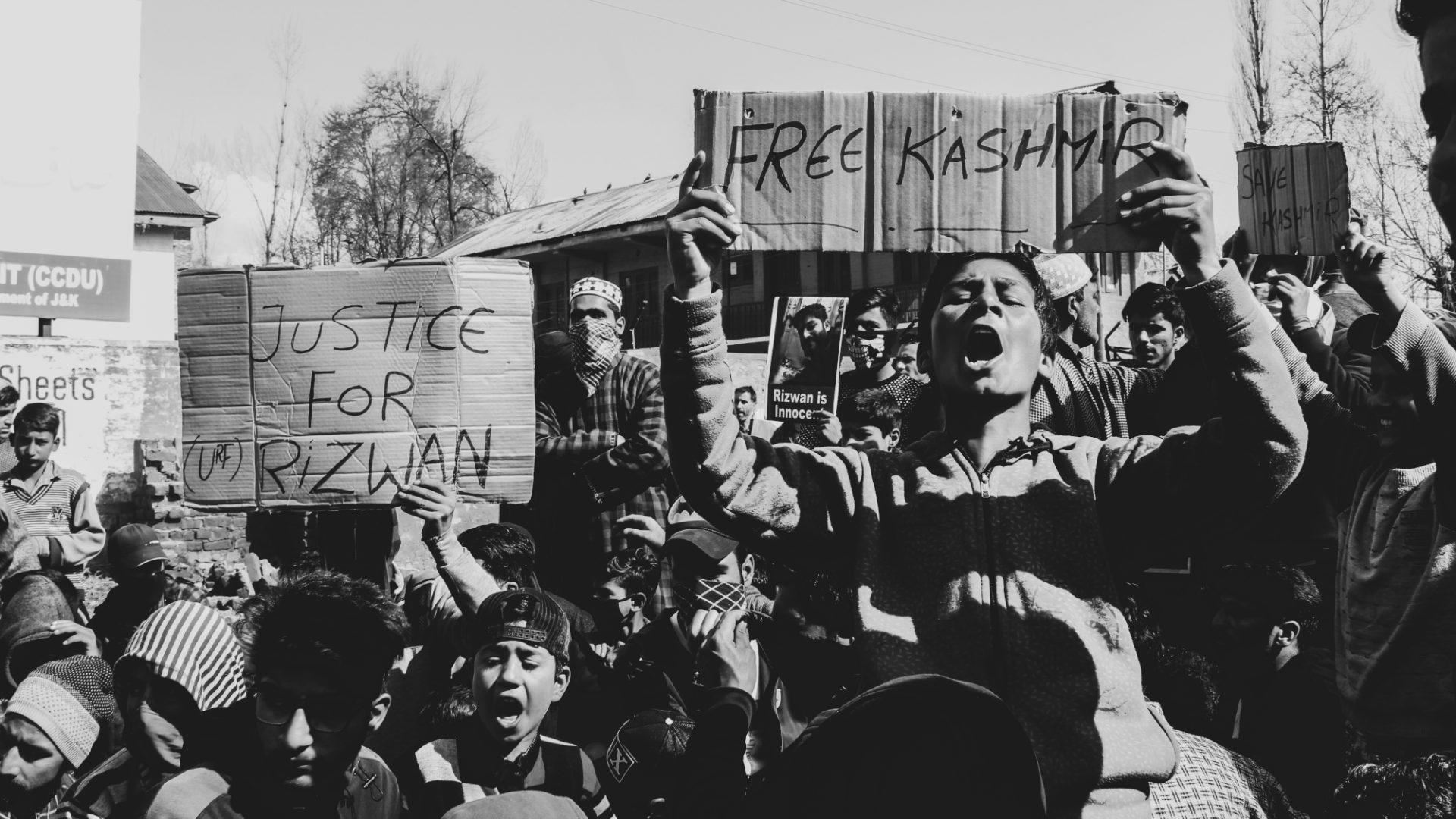by UMAR LATEEF MISGAR

These are the questions I write down in my journal on August 5, 2019, soon after India’s Home Minister stripped Kashmir of its nominal administrative autonomy and made it possible for non-Kashmiris to buy property in the region. The Articles 370 and 35-A of the Indian constitution, that provided the regional government in Kashmir with a certain degree of autonomy and prevented predatory land-acquisition by outsiders, were abrogated without Kashmiri consent. The ruling Bharatiya Janata party (BJP) has since long perceived the Muslim-majority region as a threat to the establishment of a Hindu-nationalist state in India and beyond.
This ecologically fragile and scarred land — our home, my home — has been fought over for decades and is now at risk of being plundered wholesale. Not just by jingoist settlers from outside but also by India’s capitalist powerbrokers.
In one of the last entries in my journal, I wonder whether It is possible for just a handful of people, comparatively, to protect this land from settlers and the military? “They are armed not only with deadly weaponry,” I write, “but also with perceived moral superiority shaped by the dehumanization of Kashmiris in the Indian consciousness, as well as a legal carte blanche.”
The impunity of the Indian military is so pervasive that not even a single soldier nor paramilitary has been prosecuted for the egregious human-rights abuses they have committed in Kashmir, ranging from massacres and mass-raping entire villages to torture, enforced disappearances and extrajudicial executions. I wondered to what extent the colonial onslaught would backfire and make Kashmiris suspicious of Indians in general, infecting them with a similar xenophobia that is shaping Indian state policy.
But Kashmiris rarely lose their moral clarity, not even in the most challenging times. In fact, at the cost of sounding regressive, I believe that our humanity is at its finest when we are beset with unfathomable suffering. Once, I went to cover the story of Aijaz Ahmed Paula, a carpenter and a cricketer, who had been shot dead while trying to rescue armed rebels during a gunfight with Indian paramilitaries. Still mourning the loss of their only breadwinner who was killed only three days ago, the family refused to talk to us unless we had lunch with them first.
Surviving in an open air prison
We learned about India’s formal annexation of Kashmir on August 5, when the “final solution of Kashmir’s problem” was triumphantly celebrated on Indian prime-time TV. The night before, a military siege had been implemented throughout the region, with 700,000 troops occupying almost every square inch of Kashmir; from the roads and intersections, schools, colleges and universities to public parks, private properties, orchards, courts, hospitals and places of worship. Every imaginable space was filled with military and paramilitary forces with the single purpose of cracking down on all manifestations of Kashmiri public life. Not just dissent, but life itself.
ROAR for more
